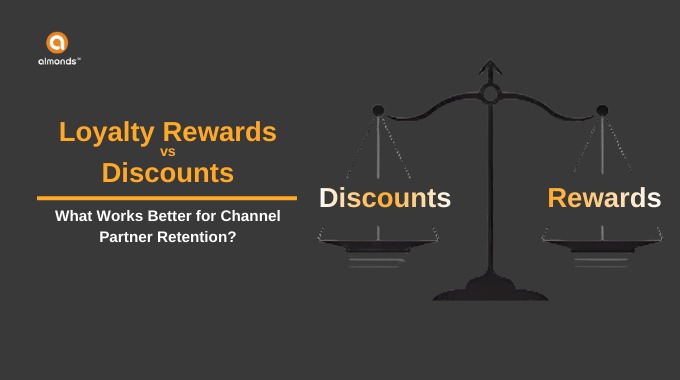Data privacy has become a paramount concern for users and businesses in the ever-evolving digital landscape. The Digital Personal Data Protection Act 2023 (DPDPA 2023) is set to usher in many countries’ new era of data protection regulations. While some brands may be apprehensive about its implications, it’s essential to understand that DPDPA 2023 can be an opportunity rather than a threat with the right approach. Today, let’s delve into why brands should prepare for DPDPA 2023 and how they can navigate this regulatory landscape effectively.
Understanding DPDPA 2023
Before we dive into the “why” and “how,” let’s grasp the basics of DPDPA 2023.
What is DPDPA 2023?
The Digital Personal Data Protection Act 2023 is a landmark piece of legislation designed to safeguard individuals’ personal data. It aims to regulate how organizations collect, process, store, and transfer personal data, focusing on transparency, accountability, and user consent.
Why brands should be concerned about the Data Protection and Privacy Act 2023:
1. Legal and Regulatory Compliance
- Fines and Penalties: Non-compliance with DPDPA 2023 can result in substantial fines and penalties. These financial consequences can significantly impact a company’s bottom line.
- Legal Action: Regulatory authorities have the power to take legal action against organizations that fail to meet the data protection requirements. Legal battles can be both financially and reputationally damaging.
2. Reputational Damage
- Loss of Trust: A data breach or privacy violation can erode the trust that customers and partners have in a brand. Once trust is lost, it can be challenging to regain.
- Negative Publicity: Data breaches and privacy scandals often lead to negative media coverage and public outcry. This negative publicity can harm a brand’s image and affect customer loyalty.
3. Customer Expectations
- Heightened Awareness: Customers are becoming increasingly aware of their data privacy rights. They expect businesses to handle their personal information with care and respect.
- Competitive Advantage: Brands prioritizing data protection can use it to attract customers who value their privacy.
4. International Operations
- Global Reach: Compliance with data protection regulations is crucial for businesses with international operations or aspirations. DPDP Act 2023 aligns with international standards, facilitating global expansion.
- Cross-Border Data Transfers: Transferring data across borders is common in today’s interconnected world. Compliance with DPDPA 2023 ensures that these transfers are conducted legally and ethically.
5. Data-Driven Business Models
- Data-Dependent Operations: Many businesses rely on customer data for various purposes, from personalized marketing to product development. Compliance ensures that these data-driven operations are conducted ethically and legally.
- Innovation: Adhering to data protection regulations can spur innovation in data management, leading to improved products and services.
6. Ethical Responsibility
- Corporate Social Responsibility: Demonstrating a commitment to data protection aligns with corporate social responsibility (CSR). Brands that prioritize ethics tend to be viewed more favorably by customers and investors.
7. Avoidance of Data Breaches
- Data Security: DPDPA 2023 encourages organizations to invest in robust data security measures. This proactive approach reduces the risk of data breaches, which can be costly and damaging.
8. Impact on Business Relationships
- Partnerships and Alliances: Many business relationships involve the exchange of data. Compliance with data protection regulations is often a prerequisite for forming and maintaining these partnerships.
9. Future Proofing
- Changing Landscape: Data protection regulations are continually evolving. By proactively complying with DPDPA 2023, businesses can position themselves to adapt to future regulatory changes more easily.
Navigating DPDPA 2023: A Strategic Approach
Now that we understand the significance of DPDPA 2023 let’s explore how brands can navigate this regulatory landscape effectively.
1. Assess Your Data Handling Practices
The first step is to comprehensively audit your data handling processes. It includes data collection, storage, processing, and sharing practices. Identify areas where personal data is involved and assess their compliance with DPDPA 2023.
2. Data Mapping and Classification
Map your data flow to understand how personal data moves within your organization. Classify data based on its sensitivity and relevance to the individual. This categorization will guide your data protection strategies.
3. Appoint a Data Protection Officer (DPO)
Consider designating a Data Protection Officer responsible for ensuring compliance with DPDPA 2023. This individual will play a crucial role in overseeing data protection efforts within your organization. However, their main role will revolve around the customers’ requests and grievance control.
4. Educate Your Team
Ensure that your employees are well-informed about data privacy principles and their roles in compliance. Conduct training sessions to raise awareness and build a culture of data protection.
5. Update Privacy Policies
Review and update your privacy policies and terms of service to align with DPDPA 2023 requirements. Be transparent about data collection and usage and obtain explicit consent where necessary.
6. Implement Robust Security Measures
Invest in robust cybersecurity measures to protect personal data from breaches and unauthorized access. Encryption, access controls, and regular security audits are essential components.
7. Data Subject Rights
Understand and respect the rights of data subjects, including the right to access, rectify, and erase personal data. Develop processes to handle data subject requests promptly.
8. Data Breach Response Plan
Prepare a data breach response plan to address potential incidents swiftly and effectively. Timely reporting of breaches is a legal requirement under DPDPA 2023.
9. Regular Compliance Audits
Periodically conduct internal audits to assess your compliance with DPDPA 2023. Identify areas of improvement and take corrective actions as needed. They can be very helpful in case of a data breach or other dire conditions.
10. Seek Legal Counsel
Engage legal counsel with expertise in data protection to navigate complex compliance requirements and stay updated on evolving regulations. They can be very helpful regarding data breaches or specific act violations.
The Benefits of Proactive DPDPA 2023 Compliance
While the prospect of adapting to new regulations may seem daunting, proactive compliance with DPDPA 2023 offers several advantages:
1. Competitive Advantage
Brands that prioritize data privacy gain a competitive edge by attracting privacy-conscious consumers.
2. Trust and Reputation
Demonstrating commitment to data protection enhances trust and bolsters your brand’s reputation.
3. Global Expansion
Compliance with international data protection standards facilitates global expansion and partnerships.
4. Cost Savings
Proactive compliance reduces the risk of fines and legal fees associated with non-compliance.
5. Ethical Responsibility
Prioritizing data privacy aligns with ethical business practices, fostering a positive corporate image.
In Conclusion
DPDPA 2023 is not a cause for fear but an opportunity for brands to strengthen data privacy, build trust, and thrive in the digital age. By adopting a strategic approach to compliance, businesses can navigate this regulatory landscape effectively, ensuring personal data protection while reaping the benefits of a privacy-conscious approach. Remember, it’s not about fearing change but embracing it and evolving for a more secure and trusted future.






